The human body is an incredibly intelligent system. When something is off, it doesn’t stay silent—it sends out warning signs. These signs may appear subtle or unrelated to the real issue, but recognizing them early can make a world of difference in your health journey.
1. Persistent Itching
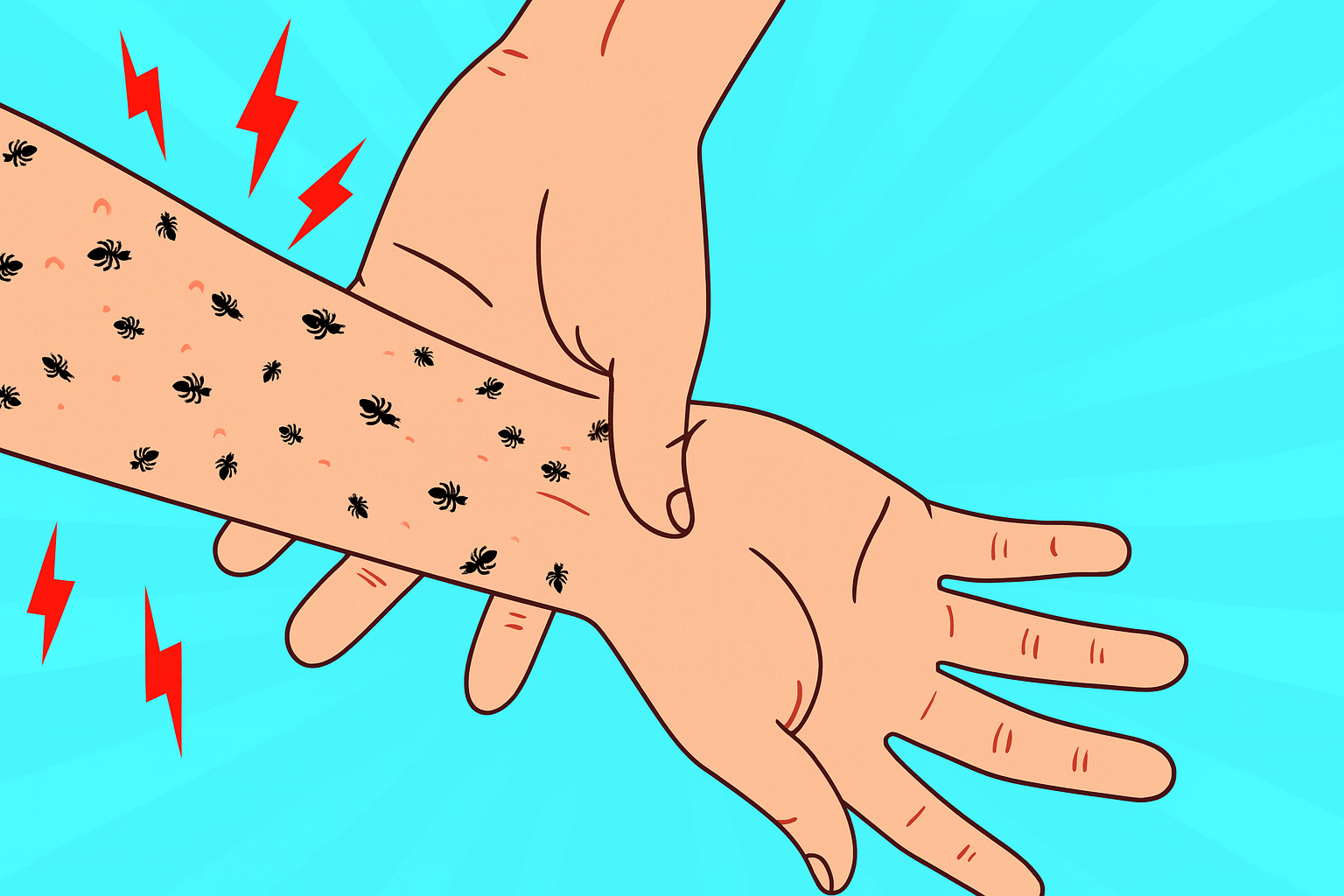
Occasional itching is normal, but persistent or widespread itching—especially at night—may point to deeper issues. Pregnant women often experience itching, but when it becomes severe, particularly in the third trimester, it could indicate liver conditions like cholestasis and warrants medical attention.
Other causes of persistent itching:
-
Skin conditions: Eczema, psoriasis, dry skin, hives, or insect bites.
-
Internal conditions: Liver disease, kidney disease, diabetes, anemia, thyroid issues, or even certain cancers.
-
Nerve-related issues: Multiple sclerosis, shingles, or pinched nerves.
-
Allergic reactions: From soaps, detergents, wool, or medications.
2. Dark Circles Under the Eyes
Lack of sleep is the most common cause of dark circles, but they may also be a sign of anemia, especially if accompanied by fatigue or pale skin. Anemia results from a lack of red blood cells to carry oxygen effectively.
Tip: A balanced diet rich in iron, folate, and vitamin B12, along with adequate sleep, can help reduce these shadows.
3. Low Hair Porosity
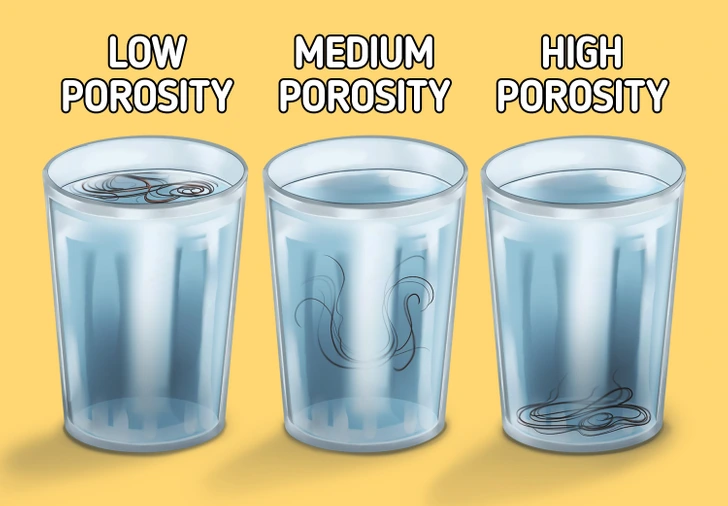
Hair porosity refers to how well your hair absorbs and retains moisture. A quick test: Drop a clean, dry strand of hair into a glass of water. If it sinks quickly, you may have high porosity, meaning your hair absorbs water fast but also loses moisture quickly.
Care tips:
-
Use moisturizing products rich in oils and butters.
-
Apply deep conditioning masks weekly.
-
Avoid harsh heat styling to prevent breakage.
4. Horizontal Lines on Your Neck
Fine lines or deeper horizontal wrinkles may be more than just a cosmetic issue. In postmenopausal women, these lines could reflect estrogen deficiency and even hint at reduced bone density, raising the risk of osteoporosis.
They can also be associated with hypothyroidism, which can affect skin texture and elasticity. A blood test can clarify if hormone levels are out of balance.
5. Blurred Vision

Occasional blurry vision may just be eye fatigue, but frequent or worsening blurriness can be a sign of:
-
Nearsightedness or astigmatism
-
Diabetes-related changes (diabetic retinopathy)
-
Cataracts or glaucoma in older adults
Tip: Schedule regular eye exams to monitor your vision and catch conditions early.
6. Ulcers on the Mouth or Tongue
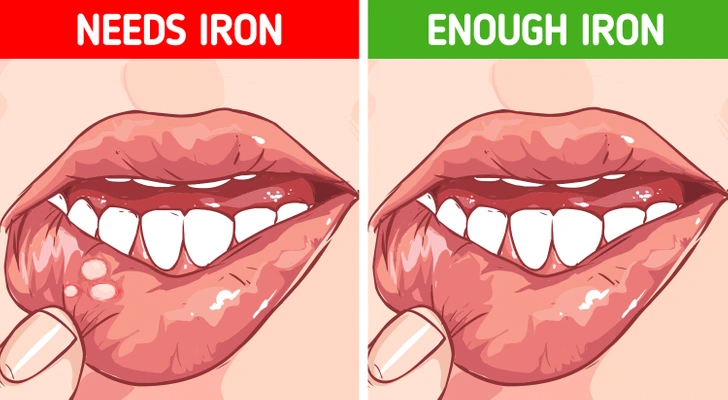
Painful sores inside the mouth or on the tongue can arise from:
-
Vitamin deficiencies: Especially B12, folic acid, and iron
-
Stress or hormonal changes
-
Food allergies or sensitivities
-
Accidental biting or poorly fitting dental appliances
If the ulcers last longer than two weeks or are accompanied by fatigue, dizziness, or fever, it’s best to consult a doctor.
7. Darkened Patches of Skin
Thick, velvety patches of dark skin on the neck, armpits, or groin may indicate acanthosis nigricans, often linked to insulin resistance, obesity, or type 2 diabetes.
Although this condition can be genetic or benign, it’s crucial to assess underlying metabolic concerns.
8. Peeling Nails, Cuticles & White Spots
Your nails can reveal a lot about your health.
-
Peeling may result from dehydration, repeated hand washing, or nutrient deficiencies.
-
White spots often appear after minor trauma but can also be due to zinc deficiency, allergies, or fungal infections.
Persistent nail changes or discoloration should be evaluated by a dermatologist or primary care doctor.
9. Cracked Heels
Dry, cracked heels are common—especially in colder months—but severe cases may indicate:
-
Eczema or psoriasis
-
Fungal infections
-
Thyroid dysfunction
-
Diabetes (due to poor circulation and nerve damage)
Care tip: Soak feet in warm water, exfoliate gently, and apply a thick moisturizer or foot balm. See a podiatrist for deep cracks or signs of infection.
10. Ringing in Your Ears (Tinnitus)
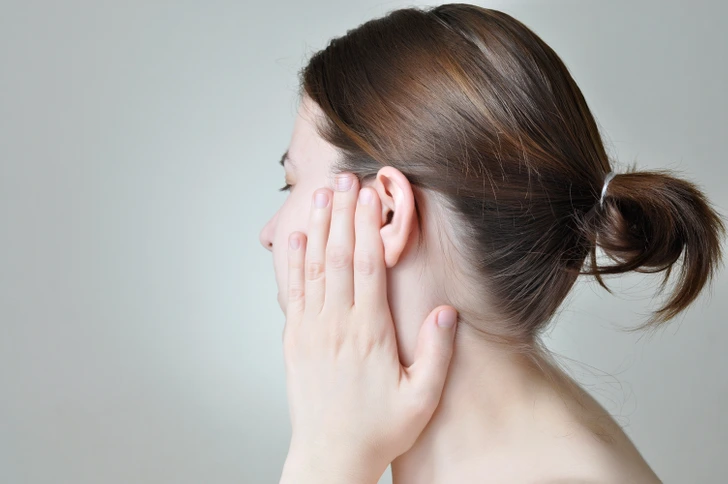
If you hear a persistent ringing, buzzing, or humming sound, you may be experiencing tinnitus. While often linked to:
-
Loud noise exposure
-
Ear infections
-
Age-related hearing loss
…it may also indicate circulatory issues or even medication side effects. A hearing test or ENT consultation can help determine the cause.
11. Redness Around the Nose, Cheeks, and Forehead
These are classic signs of rosacea, a chronic skin condition that causes redness, visible blood vessels, and sometimes small bumps. It typically affects people over 30, especially those with fair skin.
Triggers include:
-
Spicy food
-
Alcohol
-
Heat and sun exposure
-
Stress
Treatments include topical medications, oral antibiotics, and laser therapy for advanced cases.
12. Puffy or Swollen Eyes
Waking up with puffy eyes? Occasional swelling is normal, but consistent puffiness could point to:
-
Excessive salt intake
-
Kidney issues
-
Thyroid problems
-
Chronic allergies
Simple remedies: Reduce salt, drink more water, sleep with your head elevated, and increase foods high in potassium (like bananas). Persistent swelling requires medical evaluation.
13. Eruption of Tiny Yellowish Bumps
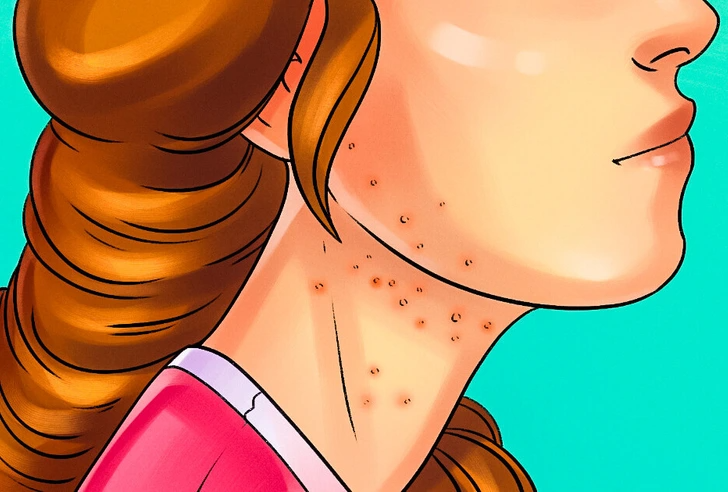
Sudden small, yellowish bumps—especially on your arms, buttocks, or thighs—could be eruptive xanthomatosis, often linked to very high triglyceride levels. This can occur in people with uncontrolled diabetes or pancreatitis.
These bumps are painless but shouldn’t be ignored. Blood tests can reveal lipid levels and help your doctor guide treatment.
Final Thoughts
Your body is always communicating with you—sometimes in whispers, sometimes in shouts. By tuning in to these physical signals, you can take timely steps to protect and improve your well-being.
If you notice any of these signs persisting or worsening, don’t delay—consult a healthcare provider. Early detection saves lives.
DISCLAIMER: This article is for informational purposes only and is not a substitute for professional medical advice. Always consult a doctor or qualified healthcare provider for concerns about your health.
Source: nowiveseeneverything.club


